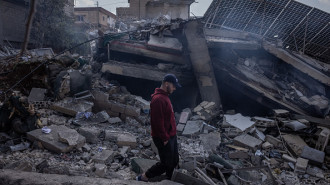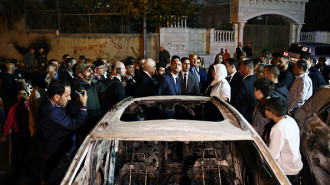'Help them return': As winter hits, Iraqis rally to get internally displaced home
Iraqis have launched a Twitter campaign calling on the government to help internally displaced refugees return home with many still living in tents years after the liberation of their towns from the Islamic State group.
Under the hashtag "Help the displaced and return them," activists, journalists and others have called on the government - now headed by Prime Minister Muhammad Shia al-Sudani - to help displaced Iraqis return to their hometowns due to the greatly improved security situation.
Journalist Bahaa Khaleel said the situation was a "disgrace for all Iraqi governments that overlooked their [displaced persons] right to return, and a greater shame for their representatives in parliament, a stark reminder that militias are in control."
ملف النازحين وصمة عارٍ على جبين كل الحكومات التي تغاضت عن حقهم في العودة
— بهاء خليل Bahaa khaleel (@rosemag_3) November 28, 2022
و عار اكبر على ممثليهم في البرلمان
ودليل صارخ على تحكم المليشيات بقضيتهم #أغيثوا_النازحين_وأعيدوهم pic.twitter.com/vvPx78WE54
London-based Iraqi journalist Saif Salah Al-Hety said “their return home is no less important than the retrieval of stolen funds,” in reference to news over the weekend that Iraq recovered "part" of $2.5 billion in public funds fraudulently withdrawn from a government account.
عودتهم لبيوتهم لاتقل أهمية عن عودة المبالغ المسروقة في سرقة القرن، لو صدقت النوايا لن يمر عليهم هذا الشتاء إلا وهم بين ذويهم معززين مكرمين. #أغيثوا_النازحين_وأعيدوهم.
— سيف صلاح الهيتي (@saifsalahalhety) November 28, 2022
Many of these displaced families and individuals live in tents that could be destroyed or severely damaged in this winter's torrential rains. A sharp drop in temperatures and a lack of electricity, water, sanitation, healthcare and education will further their suffering.
Hundreds of thousands of Iraqis fled IS which once controlled large swathes of territory in northern and western Iraq between 2014 and 2017, where it committed genocide and other atrocities.
The Afada Observatory - concerned with human rights issues in Iraq – said in a statement: "[We are] following the continued suffering of tens of thousands of forcibly displaced people from the Jurf al-Sakhar and Owaisat areas of Babel Governorate, eight years ago and more, in a precedent that contemporary history in Iraq has never seen before, under the watchful eyes of successive Iraqi governments accused of failing to come to their aid."
"There are hundreds of thousands of people from Anbar, Nineveh, Salah al-Din, Diyala, and Kirkuk provinces, displaced in camps afflicted by destitution, hunger, and moral extortion.
"They lack their minimum needs, which the Iraqi governments signed a commitment to provide, including the payment of social support salaries and the opening of health and educational centres."
بيان#مرصد_أفاد يطلق حملة شعبية لمساعدة مخيمات النازحين ويدعو لإنهاء أزمتهم المستعصية#أغيثوا_النازحين_وأعيدوهم
— مرصد أفاد (@Afada_iraq) November 28, 2022
نرجو الدعم بالنشر
للتبرع من داخل العراق
5213720437647519 ماستر كارد
07723893982 زين كاش
07723893982 موبايل
للتبرع من خارج العراق
واتساب فقط 00905395505304 pic.twitter.com/5dgG0MYIJA
Most of the camps were inhabited by widows and orphans with men either killed, disappeared or in detention.
On its Twitter page, its published the accounts of several people.
A spokesperson for Iraq’s immigration ministry had previously announced a new ministerial plan for the camps throughout the country, including providing more fuel, clothes and blankets, particularly for those closer to the semi-autonomous Kurdistan region where the weather can dip below zero.

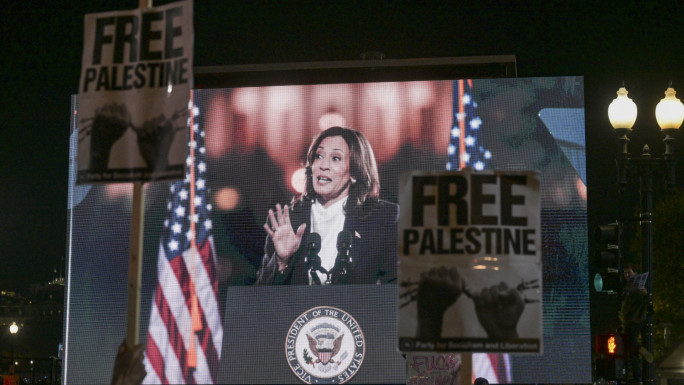

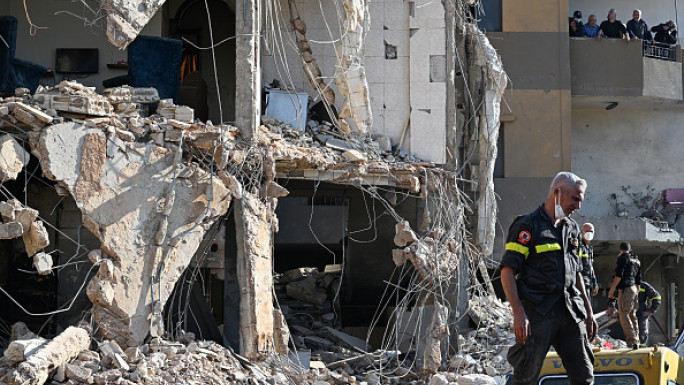
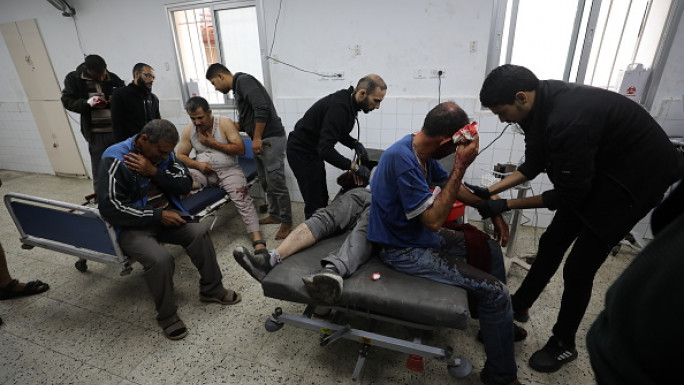
 Follow the Middle East's top stories in English at The New Arab on Google News
Follow the Middle East's top stories in English at The New Arab on Google News
